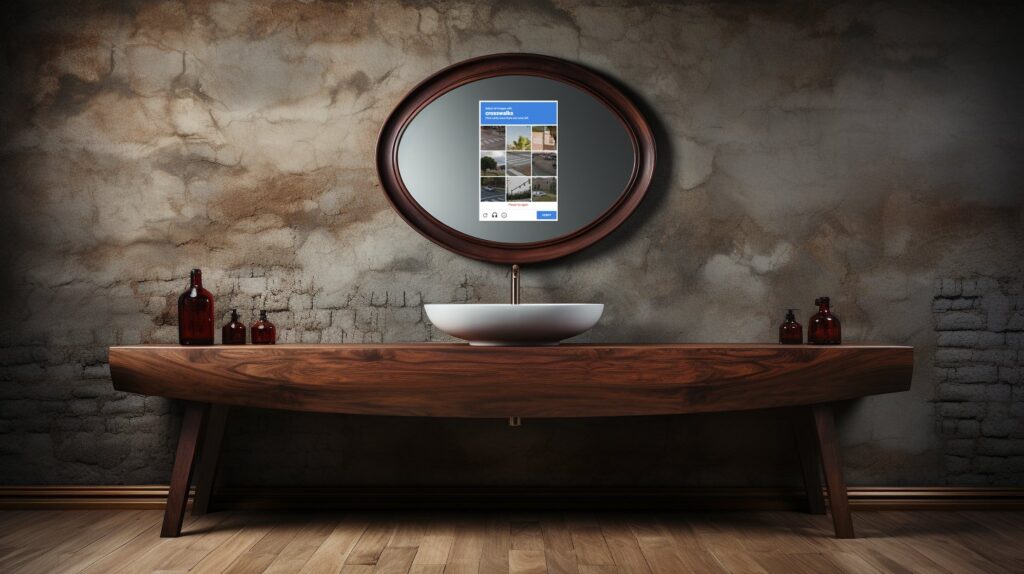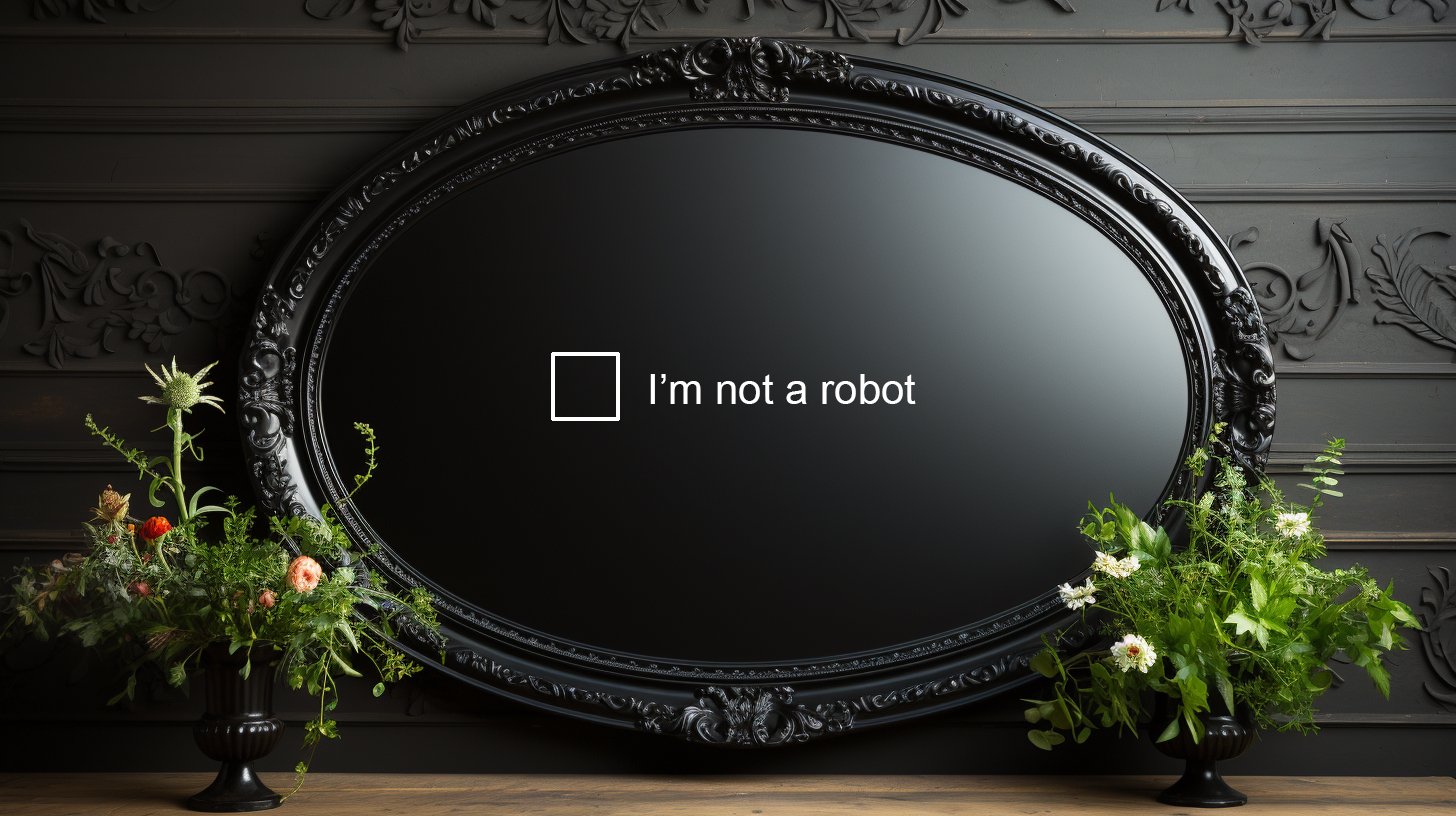In a groundbreaking move that left consumers both awed and slightly perplexed, Apple has unveiled its latest innovation: the iMirror. However, in a bold statement on the confluence of technology and personal security, the iMirror won’t actually show your reflection until you answer three security questions.
Forget facial recognition and fingerprint scans; Apple is going beyond the mere skin-deep. During its highly choreographed press event, CEO Tim Cook explained, “We believe that reflections should be not just personal, but personally secure.”
The Unveiling
As the curtain lifted to reveal the iMirror, shimmering in all its glory, a slight hush fell over the audience. Framed in what Apple described as “post-sustainably harvested celestial wood,” the iMirror looks like a typical, albeit excessively sleek, oval mirror. That is until you try to catch a glimpse of yourself and are greeted by an “I’m not a robot” prompt.
An Unprecedented Level of Security
With the iMirror, Apple has expanded its secure enclave philosophy from the iPhone to your morning routine. Said Tim Cook, “We store your reflections in encrypted form. Only you should have access to your mirror image, ever.”

But, of course, there’s a backup. Should you fail to answer the security questions correctly, you can always authenticate your identity by syncing your Apple Watch, logging into iCloud, and confirming your identity with an eight-digit code sent to a pre-approved list of five family members and one ex you forgot to remove from the list.
A Social Commentary or a Privacy Concern?
While many praised Apple for pushing the boundaries of what can be achieved at the intersection of vanity and technology, critics have questioned the actual need for this level of security. After all, a reflection is, by definition, a public image, visible to anyone who happens to be standing next to you. Does it need multi-factor authentication?
However, Apple defended its design philosophy with the same vigor with which it removes standard ports from its devices. “In a world where even your thoughts might not be safe from data mining, we’re just ahead of the curve,” said Tim Cook. “Plus, our demographic research shows that 78% of consumers don’t want other people – especially spouses or roommates – seeing them before they’ve had their morning coffee.”
An Ecosystem, Literally
Naturally, Apple wouldn’t miss a beat on the opportunity for more sales. The iMirror comes with an optional suite of upgrades, including a subscription to “ReflectPlus,” which offers motivational quotes from your reflection each morning for just $9.99 a month.
Also available is the iWindex, a screen cleaner made from organic lemongrass and priced at a humble $69.99 per bottle. According to Apple, traditional cleaners simply won’t do. “Other cleaning products disrupt the advanced polymer coatings that enable the iMirror’s secure reflective technology,” cautioned Tim Cook.
Conclusion
So, as the lines around Apple Stores lengthen and Twitter debates the absurdity of it all, the world turns its eyes to yet another Apple product that you didn’t know you needed until now. Whether the iMirror will serve as a cautionary tale or a pioneering step in the future of home tech remains to be seen. But for now, it remains a reflective example of where technology is heading — into the personal, the absurd, and the securely unattainable.
Disclaimer: This article is entirely a work of satire and fiction. In case you have an urge to believe a word of it, please look into your dressing room mirror and reflect on your life choices.
